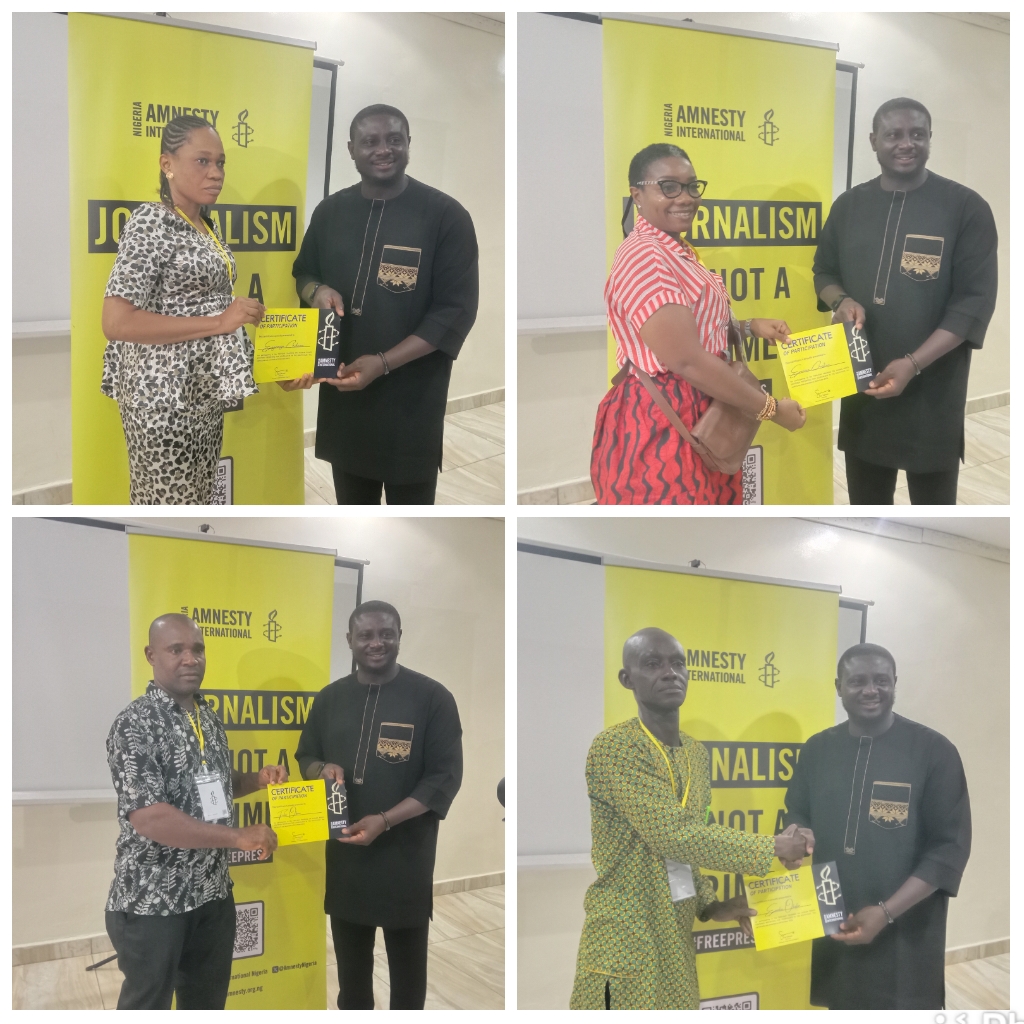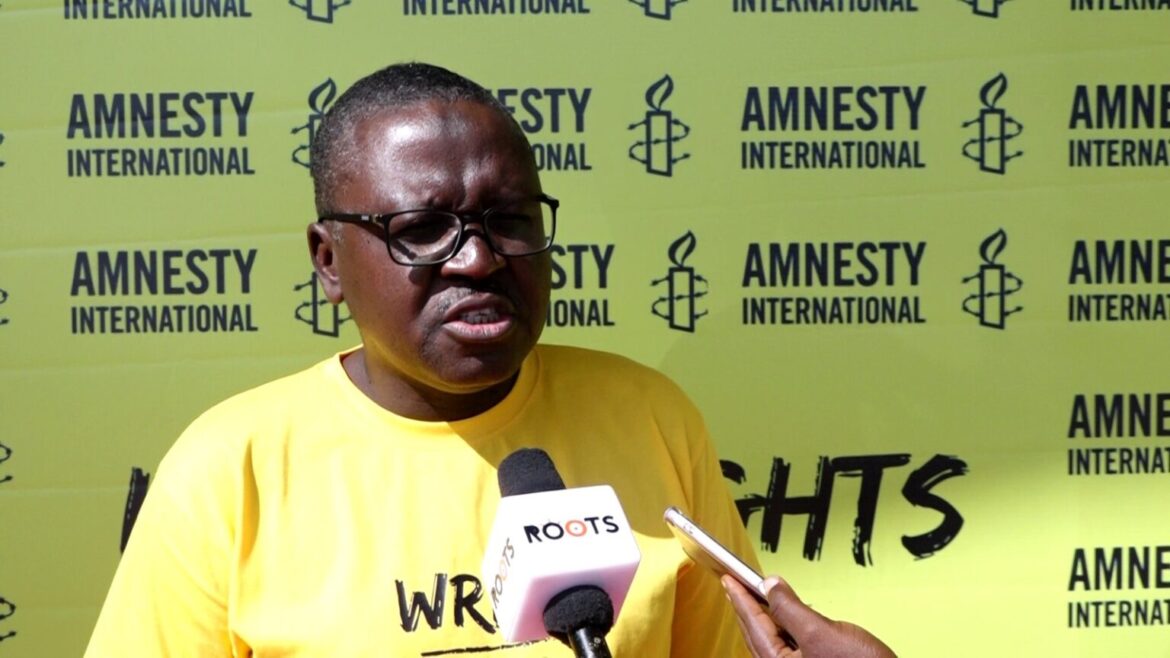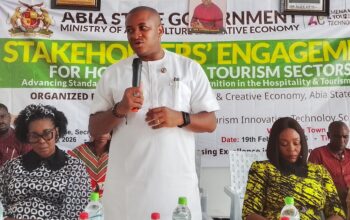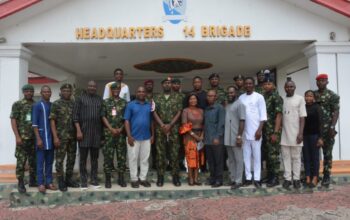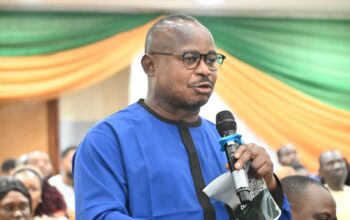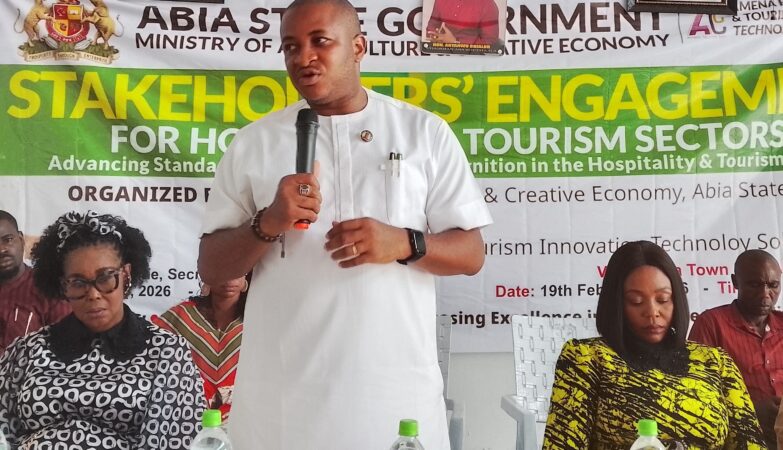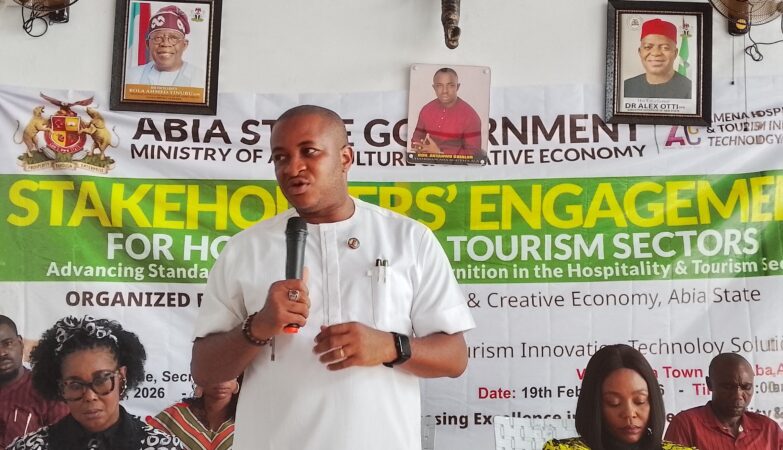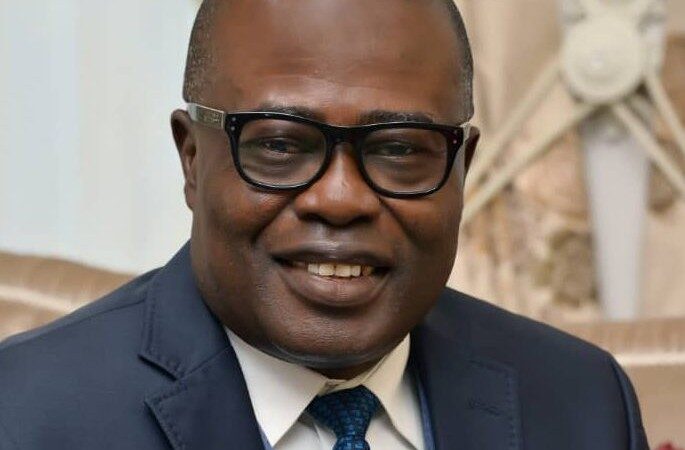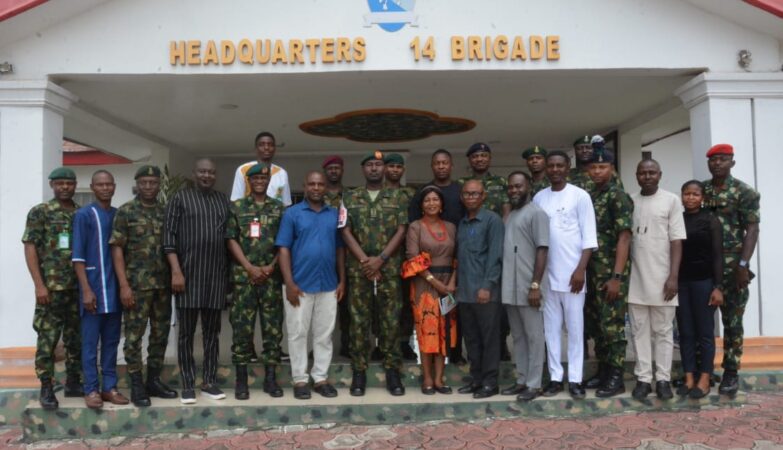The Country Director of Amnesty International Nigeria, Isa Sanusi, has called on journalists to put into daily practice the lessons learned from the Amnesty International Media Training held in Enugu on the theme “Human Rights-Centered Journalism”.
Sanusi, represented by the organization’s Media and Communications Officer, Michael Christian, said the training was designed to equip journalists with tools to report stories through a human rights lens. He noted that while many reports are factual, they often lack empathy and fail to highlight the human rights dimensions of issues.
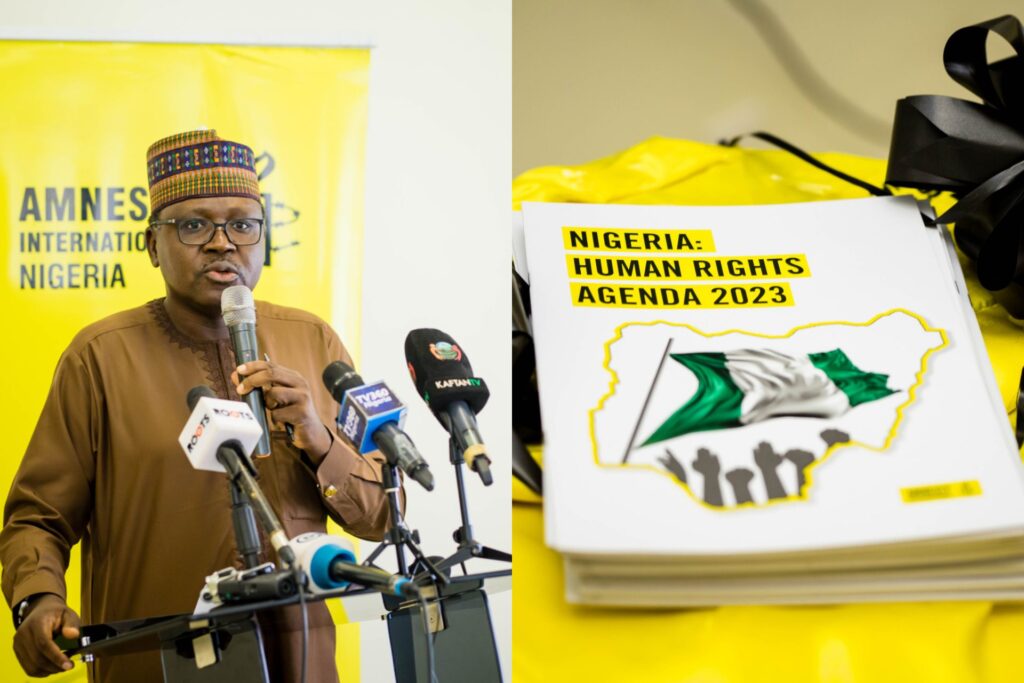
“We realized that several reports are accurate but miss a sense of empathy or human rights perspective,” Christian said. “Even a single word in a headline can influence how people perceive a story—whether as a tragedy, a social issue, or a call for change.”
He explained that the training focused on five key pillars: ethics, legal protection, safety and security, gender sensitivity, and journalism theory.
On ethics, participants were urged to prioritize truthful and responsible reporting. The legal protection module addressed how journalists can navigate Nigeria’s challenging media landscape. The safety and security component emphasized personal protection for reporters working in dangerous areas.
The training also encouraged gender-sensitive reporting and deeper journalistic analysis that goes beyond surface-level coverage.
“No one is asking journalists to take sides,” Christian added. “But you must have a perspective — a human rights point of view.”
Sanusi assured that Amnesty International Nigeria would continue to organize similar capacity-building sessions, urging journalists to hold each other accountable.
“All it takes is for you to point out when something isn’t right that alone can spark change,” he said.
“During the training held wednesday and thursday ‘Experts Urge Journalists to Uphold Human Rights, Press Freedom, and Ethical Standards”
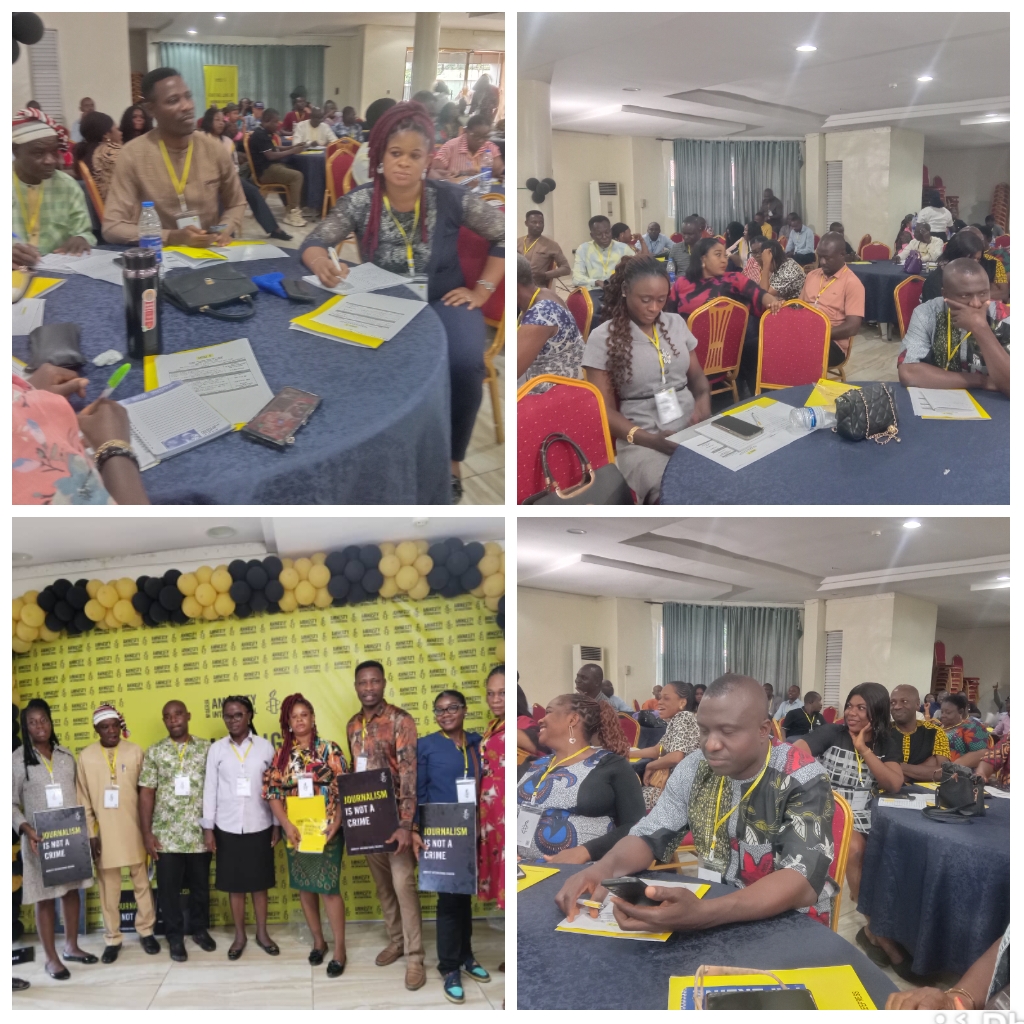
In his lecture, a University Don from the Faculty of Law, Enugu State University, Associate Professor Chijioke Agbo identified journalists as critical stakeholders in advancing freedom of expression in a democratic society.
Professor Agbo who “spoke on “Press Freedom and the Law: Navigating Legal Risks in Journalism, one and two” he explained that the African Charter on Human and People’s Rights (1981), ratified by the National Assembly through the African Charter on Human and People’s Rights (Ratification and Enforcement) Act, forms the legal foundation for protecting freedom of expression in Nigeria.
He emphasized that democracy cannot thrive if civil societies are not free to operate, stressing that freedom of expression including peaceful protest is essential to governance. According to him, “Press freedom in Nigeria appears like political power it is not given but taken.”
Agbo noted that a journalist’s right to protect their sources is not absolute, as exceptions exist under Section 39(3) of the 1999 Constitution (as amended). He identified key legal risks in journalism, including provisions of the Cybercrime (Prohibition, Prevention, etc.) Act 2015, as amended in 2024, which he described as “a weapon of oppression in the hands of the powerful,” where civil infractions are often criminalized.
Citing examples, the don warned that cybercrime-related offenses can attract severe penalties, including long-term imprisonment and, in extreme cases, capital punishment. He further listed other restrictive laws such as the Press Council Act, the Official Secrets Act, and the National Broadcasting Commission regulations.
Professor Agbo urged journalists not to be intimidated, emphasizing that “a country that wants to move forward must not joke with its journalists.”
Speaking on “Journalism with a Gender Lens: Protecting Lives, Shaping Narratives one and two,” human rights educator Barrister Anne Agi encouraged journalists to promote gender sensitivity in their reports. She stated that “the media can either mirror inequality or serve as a lens that refracts toward justice,” calling for ethical reporting that upholds dignity for all genders, whether living or deceased.
Dr Agi advised journalists to avoid sympathy for perpetrators of gender-based violence, verify facts, balance stories, and collaborate with NGOs, academics, and legal experts for accurate gender reporting. She described gender-lens journalism as viewing issues through power dynamics and lived experiences, adding that “gender sensitivity is a professional standard, not activism.”
She further advised journalists to maintain neutrality, fairness, and balance in their work. She urged them to analyze headlines critically and promote social change through responsible reporting.
“Reporting with a human rights lens means being aware of how harmful narratives can perpetuate inequality, normalize violence, and silence survivors,” Dr. Agi said.
Presenting on “Applying Media Ethics in Daily Practice: From Code to Conduct, one and two” Dr. Kabiru Danladi from the Department of Mass Communication, Ahmadu Bello University, Zaria, urged journalists to ensure fairness, accuracy, and respect for victims when reporting human rights issues.
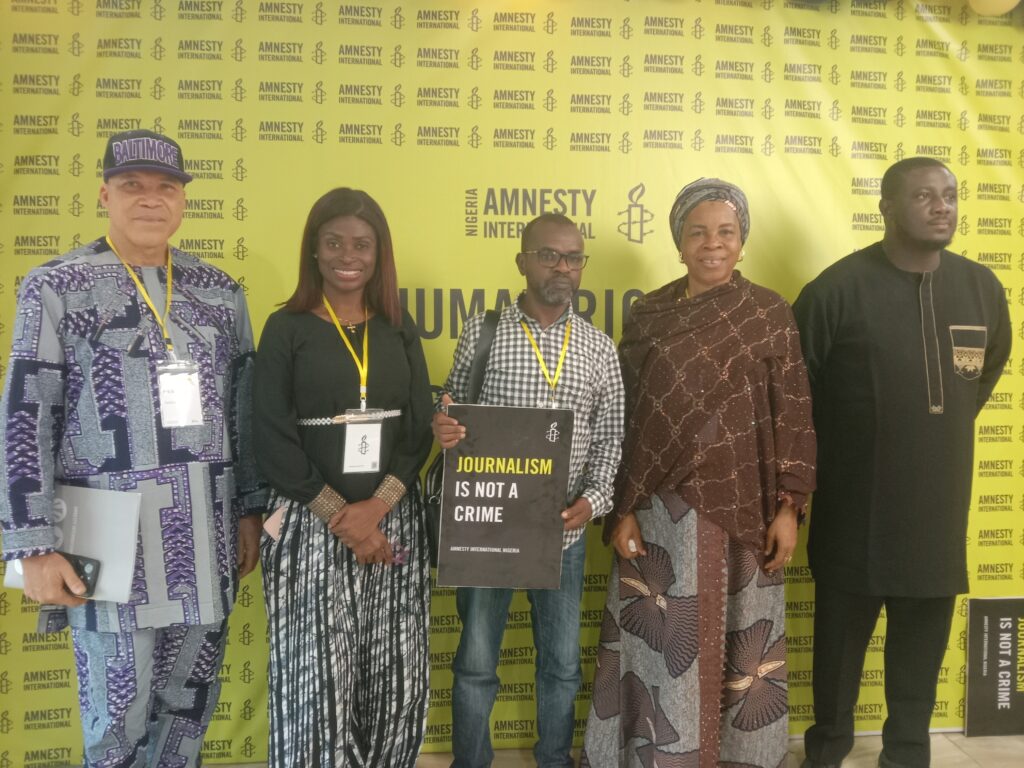
He lamented that while the NUJ Code of Ethics is widely known, it is rarely implemented, stressing that “ethics is not a luxury it is a strategic asset.” Danladi identified four major pressures affecting journalists: economic (low pay and job insecurity), political (intimidation and state control), socio-cultural (ethnic and religious bias), and digital (speed over accuracy and clickbait culture).
Dr. Kabiru Danladi emphasized the importance of ethical journalism, describing a bad journalist as one who neglects accuracy, fairness, and objectivity.
He identified poor practices such as sensationalism, misleading headlines, emotional manipulation, and exploitation of victims’ suffering as hallmarks of unprofessional reporting.
According to him, a good journalist adheres to ethical standards, respects privacy and dignity, and minimizes harm. Danladi highlighted investigative rigor and impartiality as essential traits, encouraging journalists to present all sides of a story and avoid personal bias.
In her presentation on “Journalism Theory and Practice: A Human Rights Perspective one and two,” Hajiya Zainab Okino urged journalists to apply practical strategies for ethical human rights reporting. She noted that journalism and human rights are deeply connected, as journalism “functions as a human enabler.”
Okino cautioned that self-censorship has led to the underreporting of abuses, corruption, and discrimination, and called on journalists to resist such tendencies by leveraging laws that safeguard press freedom and journalist rights.
During the session, media veteran Hajiya Zainab Okino challenged the Nigeria Union of Journalists (NUJ) and the National Association of Women Journalists (NAWOJ) to stand by members facing oppression or intimidation.
Okino noted that many journalists experience threats and resort to self-censorship, often avoiding coverage of sensitive topics such as police crackdowns, killings, or minority rights abuses for fear of backlash. She urged journalists to rally around colleagues under pressure.
Also speaking, Amnesty International’s Protection and Security Adviser, John Omilabu, in a paper titled “Reporting Under Threats: Practical Safety Strategies for Journalists, one and two” emphasized the importance of personal safety, saying it should never be delegated. He identified common threats facing journalists, including litigation, abduction, harassment, and digital or psychological attacks.
Omilabu advised reporters to practice “situational awareness” to always know who and what is around them and adopt the “AAA” principle (Awareness, Anticipation, Avoidance) alongside the “OODA” model (Observe, Orient, Decide, Act) to enhance safety.
John Omilabu advised journalists to protect themselves by avoiding the public disclosure of personal information such as locations or family details. He urged them to learn smartphone safety tools, carry emergency contact cards, and keep personal medical and professional informationsuch as blood group, employer, and editor’s contacts readily available.
Amnesty International presented certificates to participants of the two days training.
